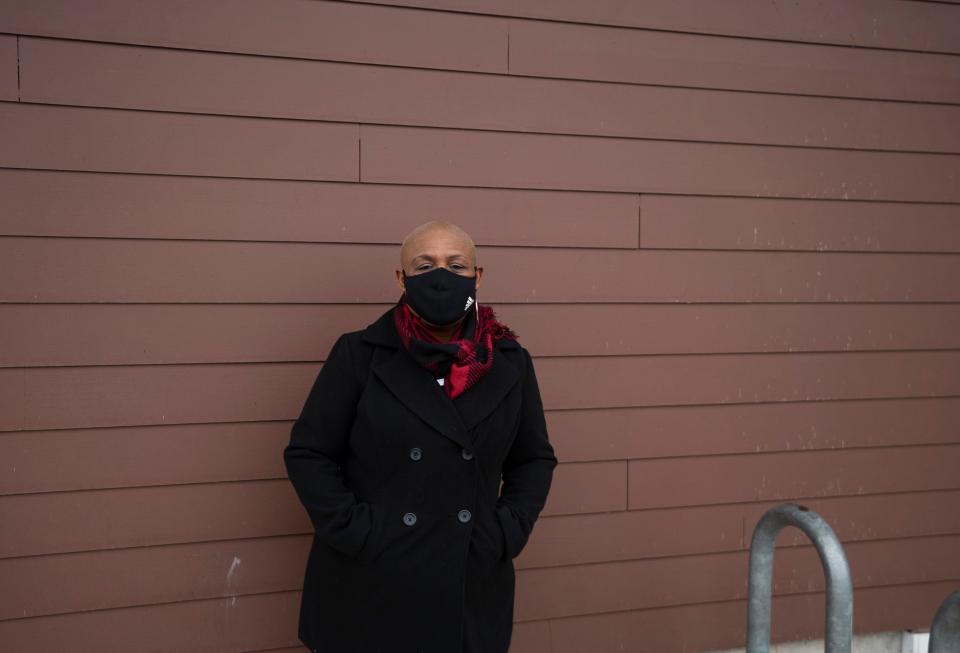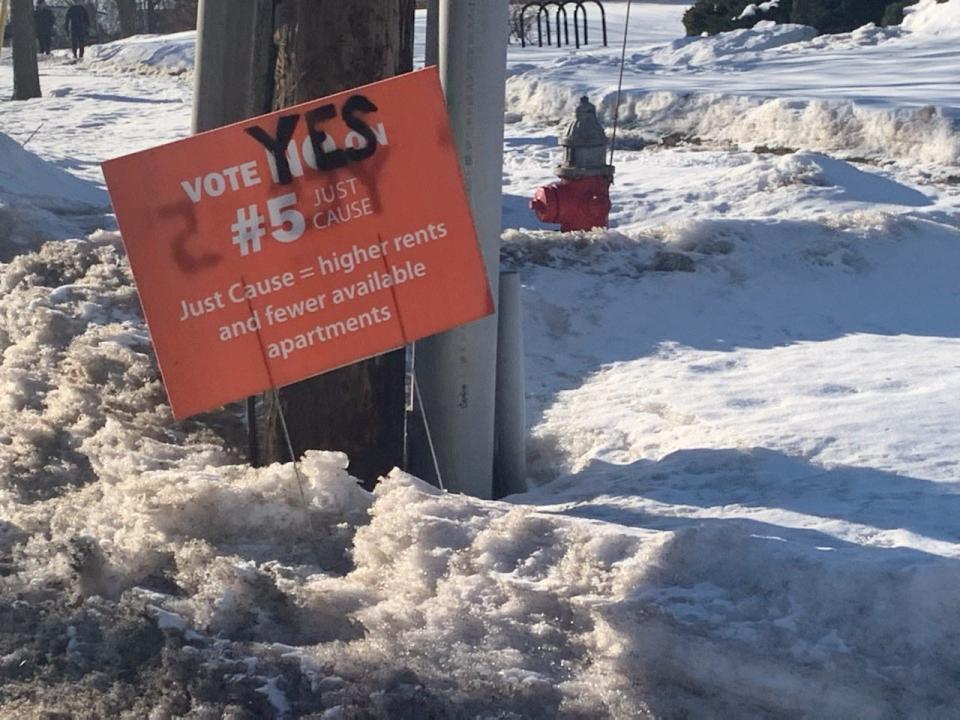Tenant rights: What Vermont renters need to know
As housing in Vermont becomes more expensive and less available, knowing the legal rights of renting might help tenants keep a roof over their heads.
"It is very important for tenants to know their rights,” said Sandrine Kibuey of the nonprofit Champlain Valley Office of Economic Opportunity (CVOEO). “So you're able to advocate for yourself. So you know what is actually accessible to you.”
CVOEO offers resources for tenants to learn about their rights and navigate the Vermont housing market, including workshops, online guidebooks, and a hotline (802-864-0099). Their illustrated guidebook is available online here: https://www.cvoeo.org/client_media/files/HAP/illustrated-renters-rights.pdf
The Burlington Free Press spoke with CVOEO to break down some of their key tips for tenants. A more comprehensive guide can be found online here: https://www.cvoeo.org/client_media/files/HAP/VTT_Definitive_Guide_and_Illustrated_Guide.pdf
Repairs, deposits, privacy, and evictions
Many tenant rights are protected by Vermont law and cannot be revoked under a lease. This includes the right to a refundable security deposit. In Burlington and Barre, a landlord cannot charge more than the amount of one month's rent for a deposit, according to CVOEO's guide.
To ensure that you get your security deposit back, take pictures of any scratches or other damage to the rental unit upon moving in, said CVOEO Housing Education Coordinator Karin Ames. “When you're ready to move out, do that same thing again, so you have before and after pictures, and you can say, ‘Hey those scratches were there when I moved in,'" said Ames.
If there's no new damage or junk left in the apartment, a landlord is required to return the entire security deposit within 14 days of move-out day, Vermont law states.
Another right protected under state law is a tenant's right to privacy. A landlord must give 48 hours notice before entering your apartment, and can only enter between 9 a.m. and 9 p.m.
With proper notice, a landlord doesn't need a tenant's consent to enter the unit. But a landlord can only enter for specific reasons, such as inspections, repairs, and showings.
If increasing the rent, landlords are required to give tenants 90 days' notice in Burlington, and 60 days' notice everywhere else in Vermont. "Rent increases" include the landlord deciding to no longer cover a utility, such as heat. Landlords can only raise the rent upon the end of a lease's specified rental period — unless the lease specifically says otherwise, according to CVOEO's guide.

All renters are entitled to safe and decent housing. This includes, but is not limited to: smoke and carbon monoxide detectors, drinkable water, hot water, doors and windows that close, heating systems that can reach at least 65 degrees during cold months, and safety from lead poisoning.
If a landlord refuses to maintain any of the above standards, a tenant can contact their Town Health Officer: https://www.healthvermont.gov/health-environment/town-health-officers/find-your-town-health-officer
If the issue persists, a tenant may have the right to break their lease and move out, sue their landlord, fix the issue themselves and deduct the repair cost from their rent, or withhold rent until the problem is fixed. CVOEO recommends you consult their hotline before employing any of those strategies: (802) 864-0099 or toll-free at 1-800-287-7971.
If a landlord wants to evict a tenant for nonpayment of rent, written notice must be given at least 14 days prior to the eviction date, Vermont law states. If "you are able to pay the back rent at any time in the eviction process, the eviction process is ended," said Corrine Yonce of CVOEO's Fair Housing Project.
If a landlord wants to evict you for no cause, written notice must be given at least 30 days in advance.

The threat of no-cause eviction can sometimes leave tenants feeling afraid to advocate for their rights, said Ames. "[Tenants] may not want to ask for repair because they may feel like a landlord might consider them a ‘problem tenant’ for asking for that repair, and give them a no cause notice to move out."
If a landlord tries to evict a tenant within 90 days after the tenant files a complaint to a government body, such as a town health officer, "it will automatically be assumed to be retaliation, and the court will side with the tenant," said Ames.
The Fair Housing Act
Under the federal Fair Housing Act, it is illegal for landlords to discriminate against tenants or prospective tenants on the basis of race, color, religion, national origin, sex, disability, and familial status.
Discrimination on the basis of race is illegal for both landlords and fellow tenants. In 2016, the Vermont Human Rights Commission required a landlord to provide separate housing and other accommodations to a tenant who was the victim of racial harassment from other tenants in the landlord's building.
Disability rights protected by the Fair Housing Act include the right to an assistance animal, which has been repeatedly upheld by the Vermont Human Rights Commission. The commission has also upheld the right of tenants to not be denied housing on the basis of using Social Security Disability Insurance, according to a 2016 report.
The category of "familial status" often refers to whether or not the tenant has children, said Yonce.
Discrimination against families with children can look like denying a mortgage loan for having children, refusing to show a home to prospective tenants because they have children, or prohibiting children from swimming in a residential pool, according to the nonprofit Vermont Legal Aid's website.
In addition to the categories protected under the federal act, Vermont's Fair Housing Act includes marital status, age, sexual orientation, gender identity, victims of abuse, and receipt of public assistance.
"Receipt of public assistance" includes Section 8 vouchers, said Yonce. In 2016, the Vermont Human Rights Commission charged a landlord $2500 for discriminating against a prospective tenant who uses Section 8 vouchers.
In Vermont, a landlord cannot fault a tenant for damage to the apartment, disturbance to neighbors, or calls to 911 if these issues were caused by a domestic abuser or assailant of the tenant, according to Vermont Legal Aid's website.
If you think your Fair Housing rights have been violated, you can call the Vermont Human Rights Commission: 1-800-416-2010 or (802) 828-2480, or email at: human.rights@vermont.gov
Resources
If you are a renter in Vermont, the following resources are available to you:
The CVOEO Vermont Tenants hotline: (802) 864-0099 or toll-free 1-800-287-7971
Vermont Legal Aid: 1-800-889-2047
Vermont Human Rights Commission's fair housing complaint line: 1-800-416-2010 or (802) 828-2480
Vermont Center For Independent Living (for people with disabilities): 1-800-639-1522 or (802) 229-0501
Burlington Town Health Officer (William Ward): 802-865-7510 or wward@burlingtonvt.gov
Burlington Tenants United: burlingtontenantsunion@gmail.com
This article originally appeared on Burlington Free Press: Tenant rights: what Vermont renters need to know

 money
money 